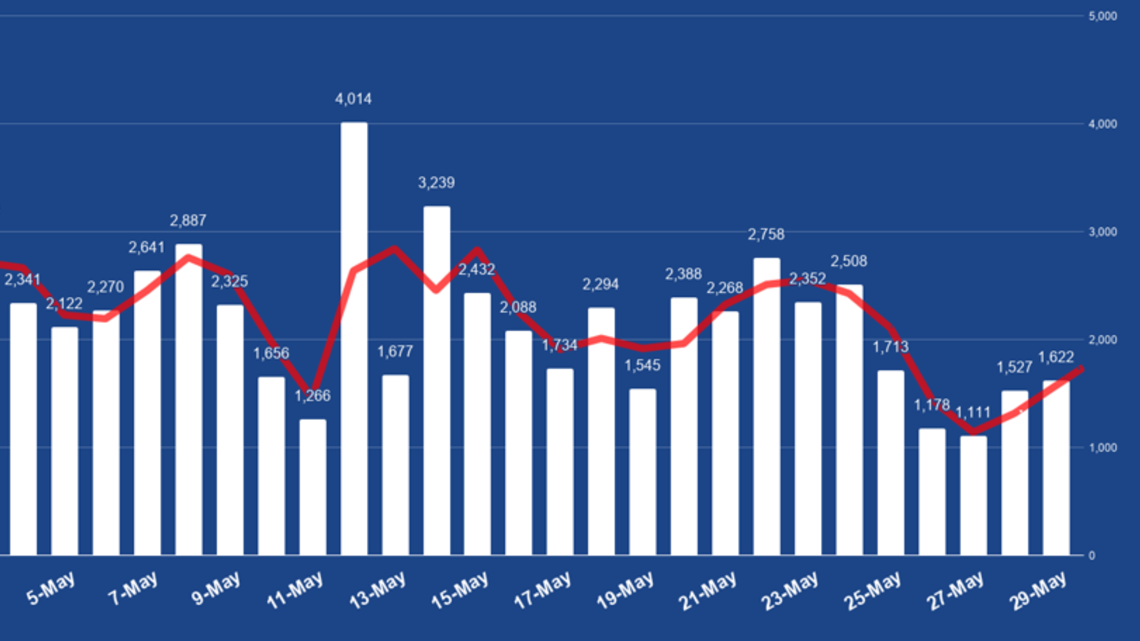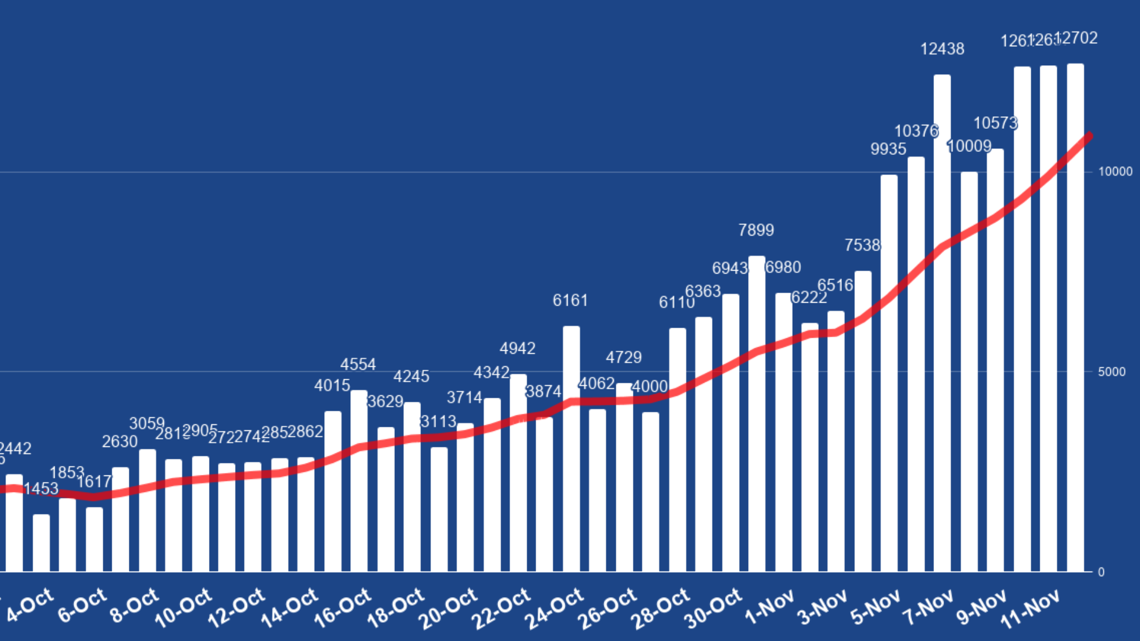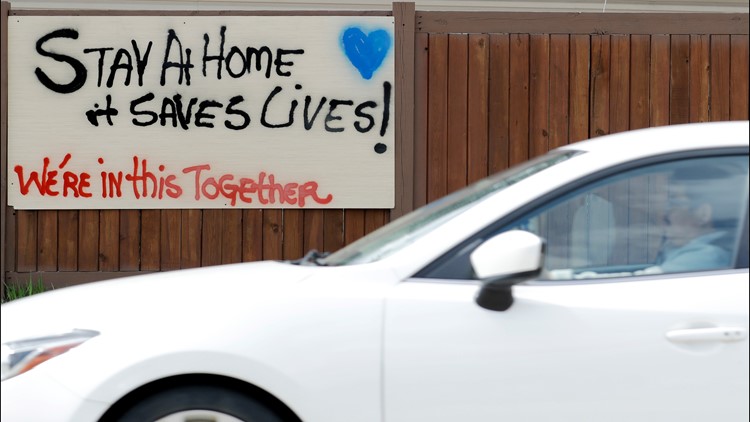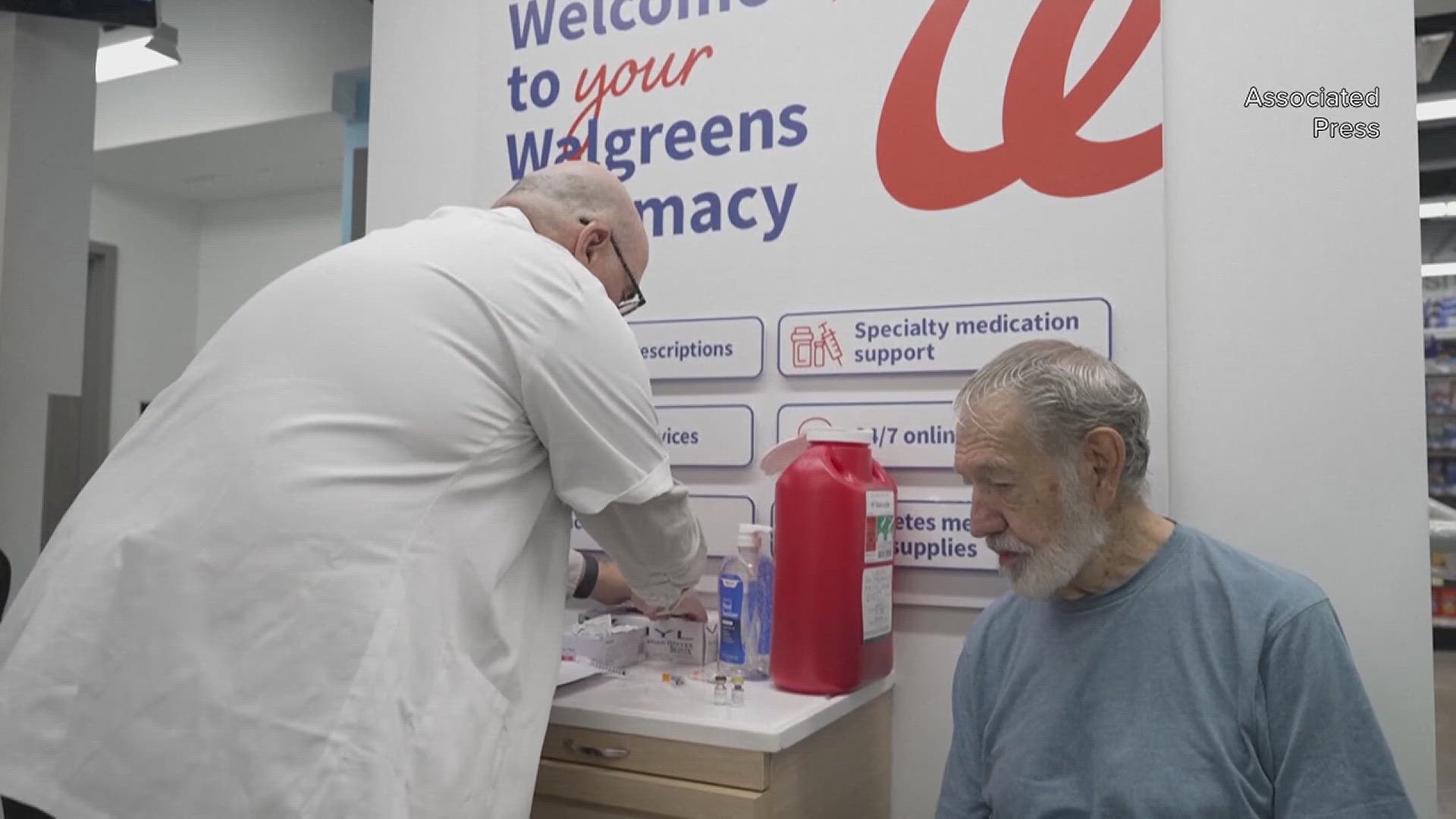The entire State of Illinois has been running under COVID-19 resurgence mitigations since Wednesday, November 4.
Under Governor J.B. Pritzker's Restore Illinois Plan, a complete reopening will happen once there's a vaccine or highly-effective treatment widely available to residents.
Given an overall rise in cases statewide that started in early October, and a spike in hospitalizations, the governor asked residents on Thursday, November 12, to stay home as much as possible, only leaving for essential reasons: work, school, groceries, doctor visits or COVID-19 tests.
This request is short of a stay at home executive order, though the governor has eluded to the possibility that another could be issued.
The spring "stay at home" order
In March, Governor Pritzker issued a "stay at home order" in response to the coronavirus pandemic. This meant that nobody was to go out of their homes for any non-essential reason.
The order lasted from March 21 through May 29.
"Because Illinoisans have succeeded in moving beyond staying home as our primary goal, this brings to an end Illinois' stay at home executive order," said Governor Pritzker, at his May 29th briefing.
On May 29 the number of new daily cases across the state was 1,622.
The chart below shows new daily COVID-19 cases in Illinois as of May 29th


Fast forward to November 12. The number of new daily COVID-19 cases was 12,702.
The chart below shows new daily COVID-19 cases in Illinois as of Nov. 12th


"If things don't take a turn in the coming days we will quickly reach the point when some form of a mandatory stay at home order is all that will be left," he said at his November 12th briefing. "With every fiber of my being, I do not want us to get there. But right now that seems like where we are heading."
RELATED: Watch: Illinois governor says things must turn around to avoid mandatory stay-at-home order
_______________
How resurgence mitigations happen:
Illinois is split into 11 regions. Within each region health officials track virus positivity rates and hospital admissions to determine if or when restrictions need to be placed on the communities to prevent further spread of COVID-19.
Here's what prompts mitigations:
Information from the Illinois Department of Public Health
- Three days in a row with a positivity rate averaging 8% or higher for seven days rolling
OR
- Sustained increase in 7-day rolling average (7 out of 10 days) in the positivity rate
PLUS one of the following
- Sustained 7-day increase (7 out of 10 days) in hospital admissions for a COVID-19 like illness
- Reduction in hospital capacity threatening surge capabilities (ICU capacity or medical/surgical beds under 20%)
_______________
There are three tiers of mitigation practices, each one more strict than the last.
To date, seven of the 11 regions are operating under Tier 1 mitigations; four are operating under Tier 2 mitigations.
What the three tiers do and mean:
Tier 1:
- Inputs restrictions on bars, restaurants, social gatherings, and recreational activities
- Remote work is emphasized
Tier 2:
- Places more restrictions on bars, restaurants, social gatherings, and recreational activities
- Remote work is encouraged
Tier 3:
- Restrictions on bars and restaurants remain
- Hospitals must suspend elective surgeries, implement surge capacities, and consider opening an alternative facility
- The strictest limits are placed on social gatherings
- Recreational activities are suspended
- Retail and salons/personal care facilities are suspended
- Remote work is instituted for all non-essential workers



